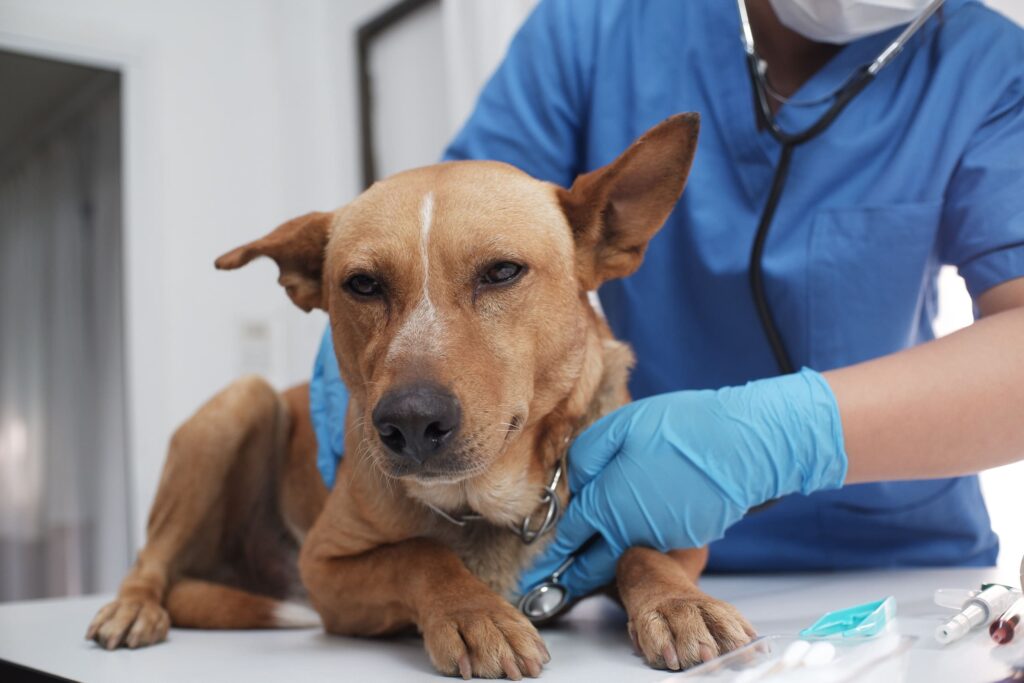Recognizing and Responding to Emergencies in Pets with Heart Disease

Heart problems in pets are often quite serious and can cause sudden emergencies that need prompt, often life-saving care. Our dedicated team at McKinney Emergency Veterinary Clinic is equipped and fully prepared to provide comprehensive emergency care services, ensuring the best possible outcomes for your furry companion. You can always count on us for care that exceeds your expectations.
Understanding Heart Disease in Pets
Heart disease in pets, just like with humans, can lead to life-threatening complications without proper management. It can affect the heart’s ability to pump blood efficiently, potentially leading to serious health complications.
Here is a look at some of the most common heart-related conditions in pets:
- Congestive Heart Failure: Congestive heart failure is a serious condition characterized by your cat or dog’s heart no longer pumping blood effectively, which can lead to complications such as fluid buildup in the lungs and other organs.
- Arrhythmias: Arrhythmias are abnormally slow or rapid heart rates, which can be life-threatening if left untreated.
- Dilated Cardiomyopathy: Dilated cardiomyopathy refers to a group of diseases that affect and weaken the heart muscle, leading to abnormal heart function.
- Valvular Degeneration: Valvular degeneration develops when the valves in the heart deteriorate and no longer close completely, which results in the blood failing to flow in the correct direction.
- Congenital Heart Disease: Congenital heart disease occurs at birth due to abnormal heart development, often leading to heart murmurs and other complications.
What Are Common Signs of Emergencies in Pets with Heart Disease?
Common signs of emergencies requiring immediate care in pets with heart disease include the following:
- Difficulty Breathing: You may notice increased effort in breathing, rapid or distressed breaths, or open-mouth breathing, often resulting from fluid accumulation in the lungs.
- Coughing: Persistent coughing, especially if it worsens at night or after your furry companion lies down, can be a sign of fluid buildup resulting from heart failure.
- Collapse or Fainting: Sudden weakness or collapse is often a sign that the heart is no longer pumping blood effectively.
- Pale or Bluish Gums: Pale or bluish mucous membranes, like the gums, may indicate oxygen deprivation, a serious emergency requiring immediate care.
- Restlessness or Withdrawal: Heart distress can lead to symptoms, including a cat or dog being unusually uncomfortable, anxious, or withdrawn.
- Abdominal Swelling: A swollen or bloated belly can be a sign of fluid accumulation resulting from heart failure.
- Decreased Appetite or Weight Loss: An unexplained decrease in appetite or sudden weight loss can be a heart-related emergency requiring immediate care.
If your pet shows any of these symptoms or if you have any concerns, it’s important to seek emergency care.
Immediate Steps to Take If Your Pet Is Experiencing an Emergency
The following are some steps to take if you believe your pet is experiencing a heart-related emergency:
- Stay Calm: Your beloved feline or canine companion will pick up on your emotions and anxiety, so it’s important to stay calm to prevent further stress.
- Limit Movement: Avoid any unnecessary activity to prevent additional strain on your pet’s heart.
- Contact Your Veterinarian: Contact us immediately at 469-820-0233 for advice on how to stabilize your pet and to allow us to prepare for your arrival.
- Keep Your Pet Comfortable: Provide a comfortable space for your pet before and during transport to McKinney Emergency Veterinary Clinic.
Emergency Care at McKinney Emergency Veterinary Clinic
When you arrive, our veterinary team will perform a thorough examination and may run diagnostic tests, such as bloodwork, digital X-rays, or heart scans (ECG). We will develop a custom treatment plan, including oxygen therapy, diuretics, or medical management to stabilize your furry friend. In some cases, your pet may require life-saving emergency surgery. Our McKinney Emergency Veterinary Clinic team will recommend the most conservative treatment options to address your pet’s emergency needs.
Emergency Cardiac Care Near Me in McKinney, TX
If you see signs of heart disease complications requiring emergency care, our team at McKinney Emergency Veterinary Clinic is here to help. We will create a personalized treatment plan to ensure the best possible outcomes for your furry companion. You can always count on our compassionate team to be here for you and your pet when you need it most.
If your pet experiences an emergency, please contact us at 469-820-0233. We are dedicated to providing the best possible care to household pets in McKinney, TX, and the surrounding communities.